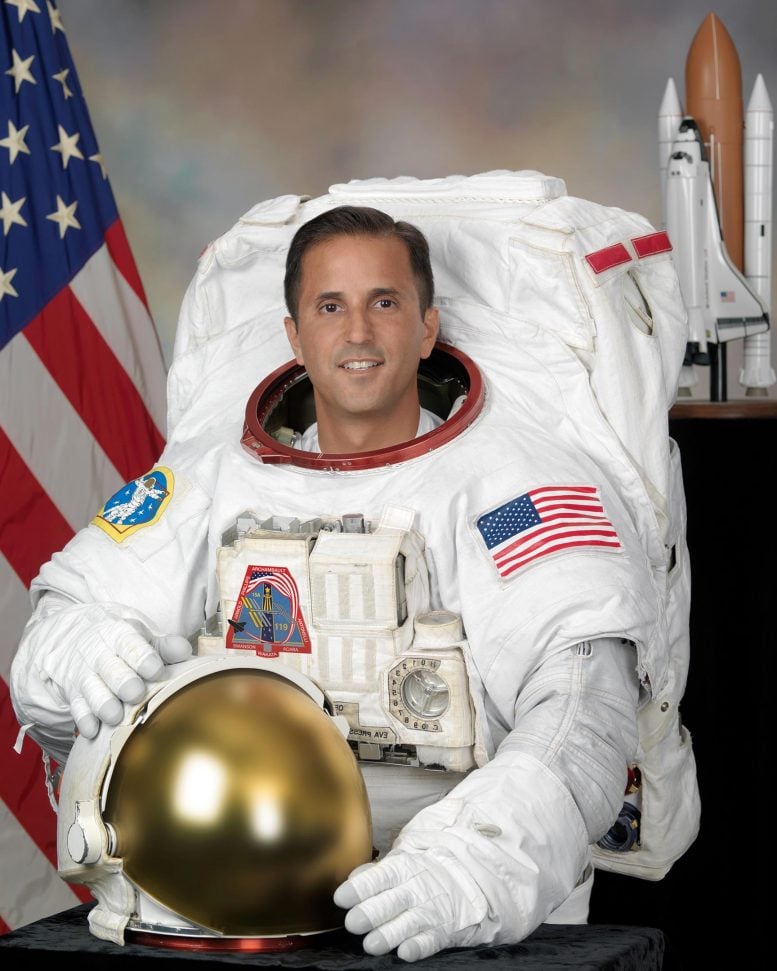NASA astronaut Joe Acaba is a member of the Artemis Team, a select group of astronauts charged with focusing on the development and training efforts for early Artemis missions.
Through the Artemis program NASA and a coalition of international partners will return to the Moon to learn how to live on other worlds for the benefit of all. With Artemis missions NASA will send the first woman and the next man to the Moon in 2024 and about once per year thereafter.
Through the efforts of humans and robots, we will explore more of the Moon than ever before; to lead a journey of discovery that benefits our planet with life changing science, to use the Moon and its resources as a technology testbed to go even farther and to learn how to establish and sustain a human presence far beyond Earth.
Joseph M. Acaba was selected by NASA in 2004. The California native has logged a total of 306 days in space on three missions. In 2009, Acaba flew aboard STS-119 on the Space Shuttle Discovery to the International Space Station to deliver the final pair of power-generating solar array wings and a truss element. During this mission, he conducted two spacewalks. In 2012, Acaba flew aboard a Soyuz spacecraft to the space station where he worked as Flight Engineer for the Expedition 31/32. During this mission, the first commercial resupply spacecraft, SpaceX Dragon, arrived at the station. Acaba recently served as Director of Operations Russia in Star City supporting crew training in Soyuz and Russian Segment systems. Acaba most recently served as Flight Engineer on the International Space Station for Expedition 53/54.








 User Center
User Center My Training Class
My Training Class Feedback
Feedback













Comments
Something to say?
Log in or Sign up for free